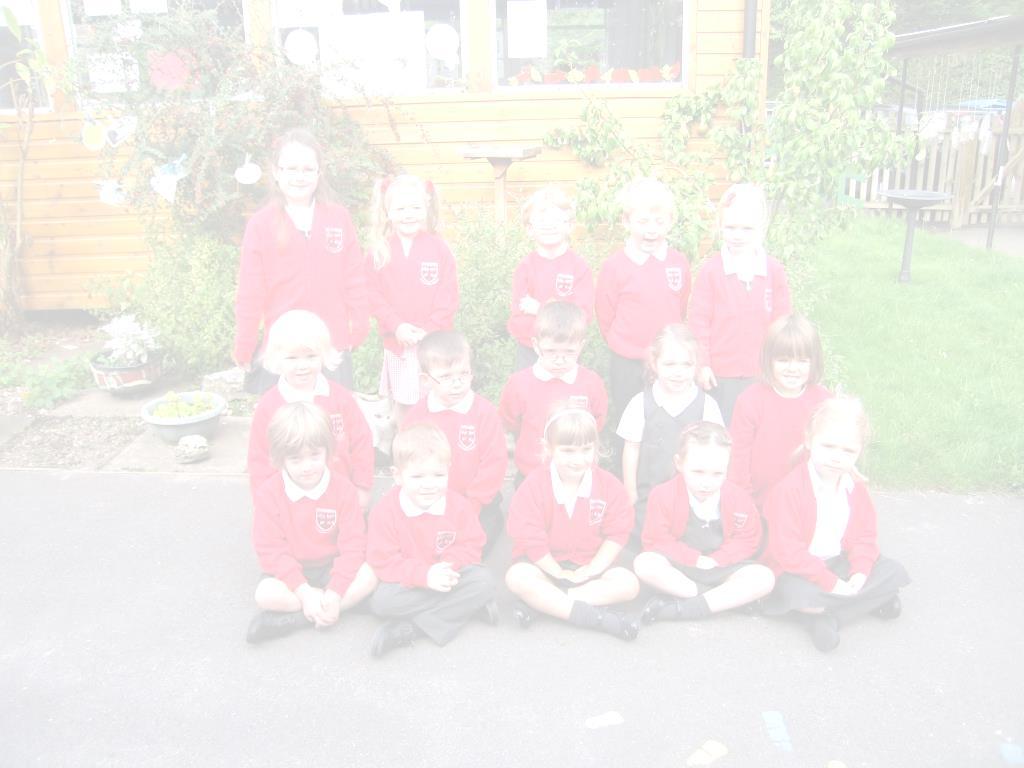
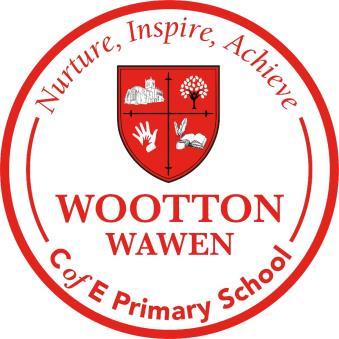

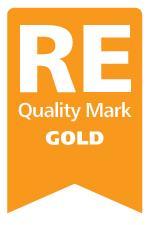
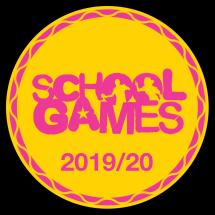
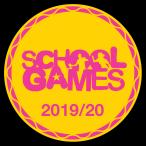
1 WOOTTON WAWEN C.of E. PRIMARY SCHOOL, ALCESTER ROAD, WOOTTON WAWEN, HENLEY - IN - ARDEN, WEST MIDLANDS. B95 6AY. TEL: 01564 792574. FAX: 01564 792574 Email: admin3074@welearn365.com
WOOTTON WAWEN C.E. PRIMARY SCHOOL

SCHOOL PROSPECTUS 2022 / 2023
CONTENTS
The Staff
The Governors
Admissions Policy
The School
Our Vision and Aims
The Curriculum - some basic principles
The Curriculum in action
PSHE and C/Sex Education
Religious Education & Collective Worship
Special Educational Needs
School Visits
Reporting to Parents
Behaviour Management
Child Protection
Security, Health and Safety
Homework
Out of school clubs/ activities
Before and After School Club
Extended Schools
Links with the local community
Friends of Wootton School
Help You Can Give
Useful Information
National Curriculum Information
National Curriculum Assessments
The Classes
Class Oak Class Willow
Class Chestnut
Class Sycamore
2
Wootton Wawen School is a Church of England Controlled Primary School with a PAN (published admissions number) of 15 pupils. It is situated in the village of Wootton Wawen approximately four miles north of Stratford-upon-Avon, two miles south of Henley-in-Arden and six miles east of the outskirts of Redditch. The village itself provides a peaceful and pleasant setting for your children's education, rich in outdoor opportunities for learning.The school plays an important role in the village and is proud to have the character and community commitment of a 'village school'.
As a church school we ensure that the school promotes Christian values which are explored through our curriculum, collective worship and the way we interact as a school community. SMSC is a strong feature of school life and we encourage children to develop the ability to find time to be quiet and relective as well as active and animated. Another feature of the school is our commitment to being physically active and this is reflected in the number and variety of sporting opportunities offered to our children as well as the well established links with local sport providers and the introduction of the Daily Mile In our most recent Ofsted (October 2016) it reported that:
“Teaching is consistently strong and as a result, pupils achieve well. You have created a culture within the school where academic excellence is celebrated, behaviour is exemplary and high levels of respect and consideration are afforded to pupils and staff alike. All pupils are proud of their school and particularly like being part of a small school community. As one pupil put it, ‘Everyone gets on together here because we all know each other.’
Should this prospectus be your first introduction to the school, you are welcome to pay us a visit out of hours. Please phone the school office on 01564) 792574 to arrange a convenient time. The Head of School will be pleased to meet with you and show you around the school.
You can also visit our website at www.woottonwawenprimaryschool.co.uk
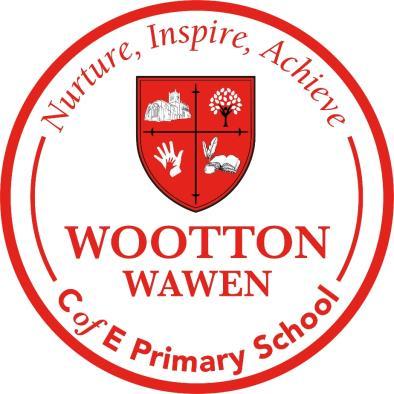

3
The designated Teachers in charge of SAFEGUARDING are S. Jones, S. Gair and H. Wood
THE STAFF
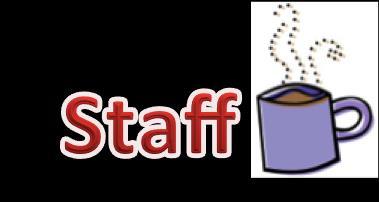
Miss Sally Morris Executive Headteacher

Mrs S. Gair Head of School, Literacy and PSHE leadand E and Safeguarding.
Mrs Kate Addock SEND Co (part-time)
Ms A. Bradshaw Teacher of Oak (R/1) and PE, Humanities , Art, DT and Wellbeing lead.
Miss N. Bains Teacher of Willow (1/ 2) and Geography Lead.
Mrs V. Khawaja Teacher of Chestnut (Yrs 3/4)) and Music, RE and ICT lead.
Mrs C. Woods Teacher of Chestnut (Yrs 3/4)) and Science lead.
Mrs H. Wood Teacher of Sycamore (Yr 5/6) and Mathematics and Languages lead.
Mrs F. Ellard Teaching Assistant and Thrive Lead Practitioner
Mrs D. Coldicott Teaching Assistant
Mrs S Agar School Administrator and Business Manager
Mrs H.White School Administrator and ICT Technician
Mrs K. Ross Senior Cleaner & MDSA
Mrs M. Lovell Cleaner
Mrs T. Lodge Beech Hut(wrap around care) Manager
Mrs Ms D. Barnett Beech Hut assistant and MDSA
Mrs D. Hartwright MDSA
Mrs H. Hogg MDSA
4
Foundation Governors
Ex-Officio.
Rev. Alison Hampton
Vacancy
County Council Representative Governors

Mr S. Tomes, (Chairperson).
Mr M. Dufty
Staff Governors

Mrs S Gair
Miss Ann Bradshaw
Parent Governors
Mrs M. Folkes
Mrs A. Hornsby
Other
Miss S. Morris
Mrs H. White
Mrs .K. Ellicott ( Safeguarding Governor)
Mr T. Cooke
THE GOVERNORS
5
ADMISSIONS POLICY
Wootton Wawen School serves the parishes of Wootton Wawen and Bearley but currently receives a significant number of children from a wider geographical area including Henley, Ullenhall, Snitterfield, Aston Cantlow and Redditch. We feel the wide geographical mix greatly benefits all children in the school.
Admission to the school is made through Warwickshire County Council. The school has a standard admissions number of 15. This means that the school must admit up to 15 children in every year group. Admissions above 15 will be subject to the Authority's Appeal Procedure and will depend on overall numbers and class sizes, proximity to the school and the position in other local schools.
If more than the standard admissions number of 15 apply for places in any one year group then the following priorities would apply:-
1) Children from the parishes of Wootton Wawen and Bearley who have a brother or sister at the school.

2) Other children living in the parishes of Wootton Wawen or Bearley.
3) Children from outside the parishes of Wootton Wawen or Bearley who have a brother or sister at the school.
4) Children from outside the parishes of Wootton Wawen and Bearley and without brothers or sisters in the school.
If a year group is full then your son/daughter can be entered on a waiting list and you would be contacted should a place become available if someone was to leave the school or to turn down a place that had been offered. The waiting list will be deleted and renewed at the beginning of each school year.
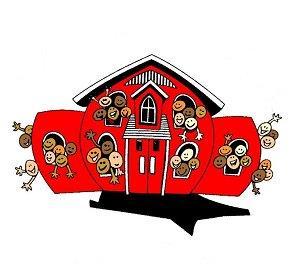
Subject to the admissions criteria, we are able to admit children at any part of the school year, however should you choose Wootton Wawen CE Primary as the first school for your child(ren) then they will start in the September of the academic year in which they are 5 years old. You will probably already have made at least one visit to look around the school with your daughter/son but before they start we hold parents and children play afternoons. These take place in the summer term before the September in which they are to start and give the children the opportunity to meet their teacher and their classmates and to undertake a variety of activities together with their parents. In this way we aim to familiarise the children with the school and thereby increase their confidence before they start in the September. The Reception teacher will also visit the nurseries that the children attend to get to know the children and share information.
At the beginning of the Autumn term for the first week the children in the new EYFS class will come for half days only. This gives the class teacher an opportunity to settle the new children and to get to know them in smaller groups. We aim for all children to be in school full time by the second week of term but will liaise with parents if it needs to be longer.
6
The School Vision
Wootton Wawen CE Primary School

Working together to build a learning community that respects, nurtures, and inspires each child's unique gifts to achieve future success.
1 Corinthians 12
There is one body, but it has many parts. But all its many parts make up one body. It is the same with Christ.
Nurture,Inspire,Achieve.
Our vision is to be an outstanding school which provides children with the challenge and support they need to become exceptional individuals with the skills and confidence to embrace future opportunities and challenges.
To achieve this vision, we will:
Recognise and nurture the unique gifts of each pupil
Ensure that our core Christian values underpin everything that we do
Provide great teaching and learning
Build positive partnerships to ensure pupils have access to the best resources and experiences we can provide
Place high importance on promoting physical and mental health and well being
Make sure all children have a sense of belonging- without exception, without exclusion Mission Statement

Wootton Wawen C of E Primary School aims to provide an inspiring and supportive learning environment where children are challenged and encouraged to be the best that they can be. Whilst recognising the importance of academic success we are committed to helping each child grow; nurturing their unique gifts and helping them to develop the resilience and confidence they will need to become successful, respectful members of society.
You will find that Wootton Wawen C of E Primary School Is:
A place of Christian values, where children learn respect for themselves and others
A place of opportunity, where children achieve well both academically as well as in sport and the arts.
A caring place, where children and adults feel they can contribute to their own community and the wider world. A place where they are valued as individuals
A partnership between children, parents, staff, governors and the community as a whole
A happy, safe and stimulating place to be, where everyone is encouraged to become a lifelong learner
As a school community we identified the following values as those we felt applied to our school community: perseverance, respect, compassion, peace, truthfulness and coura
7
Curriculum Statement
Our Curriculum Vision
Wootton Wawen C of E Primary School aims to be an inclusive community where children grow, learn and achieve together. Our distinctly Christian vision is at the heart of all we do, which encourages children to develop their social, moral, spiritual and cultural values. Our rich and engaging curriculum is carefully planned and sequenced to inspire by cumulatively building knowledge, skills and vocabulary to create memorable moments for all. Within our Wootton family, we create a nurturing environment which seeks to foster resilience, confidence and independence for all, preparing each child for their continuing learning journey.
Curriculum Implementation
Recognising that knowledge and skills are intertwined, we have taken a cross-curricular approach to our planning to maximise links across subjects and to ensure teaching and learning is relevant and meaningful. Using the EYFS Statutory Framework and National Curriculum, age-appropriate progression in knowledge and skills for each subject has been identified and mapped out.
The curriculum is delivered as a two-yearly rolling programme for KS1, Years 3 and 4 and Year 5 and 6 and on an annual basis in EYFS. Topics are carefully planned to capture the interests of our children and curriculum maps summarise the key aspects of work covered over a term. In order to ensure that progression and balance is maintained, the programmes of study are also developed into medium-term plans with clear learning objectives. We use every opportunity to capitalise on connections between subjects but some such as RE, PE and PSHE are often taught discretely to ensure coverage of the main objectives and age-appropriate knowledge and skill development.
As a church school we believe that the RE curriculum allows the children the space they need to get to grips with who they are, what life can mean for them and what the meaning of life might entail for other people and the world around them. We follow Warwickshire's Agreed Syllabus for Religious Education supporting this with the Understanding Christianity, basing our teaching on basic Christian beliefs whilst at the same time broadening pupils, knowledge and understanding of the beliefs and values of other major religions.

We teach Mathematics and English in line with the National Curriculum but we are keen to make sure that children are given plenty of opportunity to apply the skills that are learnt in all areas of the curriculum. Targets set for the end of each year ensure that children are meeting expectations in their learning. The more able are challenged further in their learning and children who find aspects of their learning more difficult are appropriately supported so that they too are enabled to experience success.
English includes Reading, Writing (including Grammar, Punctuation and Spelling), Speaking, Listening and, in the early stages, phonics. We use the Read, Write Inc. scheme to ensure children acquire a sound phonic knowledge from an early age. Mathematics is taught using a range of materials developed through the local maths hub. We make extensive use of the White Rose Maths materials.
History, Geography, Design Technology, Art and Design are fundamental to our termly themes and Science is taught through topic where possible but as a separate subject where necessary.
We teach Computing in each year group but also make use of Information Technology to support learning and bring the curriculum to life. We use the Switched-On computing scheme and strive to achieve a balance between digital literacy, programming and data handling.
The Modern Foreign Language we have chosen to teach is French and we use the Early Start materials supported by La Jolie Ronde. We want to develop enthusiastic language learners with a positive attitude to communicating in different languages.
8
There is a strong musical tradition in the school. Musical and dramatic productions are a regular feature of school life. The school offers peripatetic music tuition in a range of instruments, there is a charge for this tuition. The school choir plays a large part in the life of our school and takes part in many community events. We follow the Charanga scheme for music in class as it supports non-specialists and also maintains the balance between listening, appraising, performing and composing.
In P.E. the children have regular use of the hall for gymnastics, dance and drama whilst the school field and playgrounds offer ample space for the development of games skills. In total each child receives on average approximately 2 hours P.E. per week. (Also see Out of School Clubs). To make the best use of curriculum time we audit all pupils in years 5 and 6 to ascertain their swimming experience and ability and then we provide intensive lessons to help them achieve the 25m target for the end of KS2. Transport to these lessons is subsidised using the sports grant. Our core schemes are Real PE and Real Gym, which focus on developing core skills and making sure every child is active for most of the lesson.
As a church school we have a responsibility to create a school where children are viewed as unique creations of God that deserve to be listened to, nurtured and allowed to grow in a positive but challenging environment. We have developed a series of topic grids (see below) which we hope will give you an overview of what is being taught through each theme. They are constantly under review to keep the children’s learning fresh and relevant. Aspects of PSHE and Citizenship are built into all subjects and are woven into the life of our school. However, there is also a separate PSHE and Citizenship curriculum which teaches children about themselves and their relationships. We aim to prepare children to be self-confident and motivated with a strong sense of their own identity, the responsibilities they owe to themselves and to others. The Protective Behaviours Project promotes an awareness in pupils of how to stay safe and the strategies to use should they ever feel the need for support. The Governing Body has approved the Schools policy on Sex and relationships Education. All staff deal with questions as they arise whilst a formal Sex and relationships Education programme also takes place. The resources used in this programme are shown to parents in advance of their use. Parents have the right to withdraw their children from the formal Programme. The School use materials from Jigsaw to deliver this aspect of the curriculum and also invites the school nurse in to work with Year 6 children.
Collective Worship
We follow a Values Education programme focusing on a different value each term and encouraging children to think about why this value is important in their community and what the bible teaches us about the value. The school holds daily assemblies based on Christian principles, which include hymns, stories, bible readings, talks and prayers. The vicar of Wootton Wawen takes assemblies on a regular basis and the children visit St. Peter's Church at least once per term. Parents are invited to join us for half-term Celebration Assemblies. Parents have the right to withdraw their children from R.E. and Collective Worship.

School Visits
School visits take place on a regular basis in order to enhance the work undertaken in the classroom and a residential visit is organised for Sycamore pupils. A full copy of the governing body charging and remissions policy can be seen at the school but in summary for visits during school time the school will seek voluntary contributions from parents. All children will take part in the visit irrespective of whether or not voluntary contributions are received but if there is not enough money raised then the trip may need to be cancelled.
For visits outside school hours parents will be asked for the full cost of the visit. Any parents facing financial difficulties should consult the school as alternative methods of funding can normally be found.
Reporting to Parents
9
The school holds two parents evenings, one in the autumn term and one in the spring term when parents can look at their children's work and discuss progress with the class teacher. Detailed reports are provided in the summer term and these are followed by open afternoons when the children themselves invite their parents into the classroom to view and discuss their work and achievements. However, teachers are always available for less formal contact at the beginning or the end of the day when concerns of any nature can be discussed in an informal manner. It is always helpful if these can be arranged by prior appointment.
Behaviour Management
The school adopts a positive and restorative approach to discipline and behaviour management. Good behaviour is always praised and undesirable behaviour is marginalised. We adopt a range of strategies to establish and encourage caring and responsible behaviour.
We have a SMART behaviour in school which means that we expect the children to be SAFE, show good MANNERS, show a positive ATTITUDE, show RESPECT to all and demonstrate TEAMWORK, this helps children to be aware of our expectations and suitable parameters of behaviour. There is a clear range of sanctions which are employed in cases when behaviour may be inappropriate.

The result is that children’s behaviour is of a high standard, with pupils feeling motivated to contribute positively to their school.
The school’s Anti-Bullying Policy is based on the Church of England’s publication “Valuing All God’s Children” and can be found on the website. Every year we engage with Anti –Bullying Week and we also use E-Safety lessons to openly discuss cyber bullying.
Safeguarding
At Wootton Wawen we are always alert to the care and needs of every child. The school works in partnership with other agencies, for example, the Health Authority or the Social Services who share our commitment to protecting your children. The people in these agencies can include health visitors, doctors, school nurses, social workers or housing officers.
Our first concern is always your child's welfare. There may even be an occasion when we have to consult other agencies before we contact you.
The procedures we follow have been laid down by the Warwickshire Area Child Protection Committee. We do acknowledge that the most successful partnership is a close liaison between home and school.
All volunteers working in school with the children must have completed a DBS check.
We have three members of staff who have received the training for Designated Teachers responsible for Safeguarding. They are Sally Morris ( Executive Headteacher) and Sian Gair ( Head of School) and Helen Wood.
‘Under the Education Act 2002 (Section 175 for maintained schools/Section 157 for academies/free/independent schools), schools must make arrangements to safeguard and promote the welfare of children. Parents/carers should know that the law (Children Act 1989) requires all school staff to pass on information which gives rise to a concern about a child’s welfare, including risk from neglect, physical, emotional or sexual abuse. Staff will seek, in general, to discuss any concerns with the parent/carer and discuss the need to make a referral to Children’s Social Care if that is considered necessary. This will only be done where such discussion will not place the child at increased risk of significant harm or cause undue delay. The school will seek advice from Children’s Social Care when they have reasonable cause to suspect a child may be suffering or likely to suffer significant harm. Occasionally, concerns are passed on which are later found to be unfounded. Parents/carers will appreciate that the school’s Designated Safeguarding Lead carries out their responsibilities in accordance with the law and acts in the best interests of all children.
10
Security/Health and Safety
The security, safety and well being of the children - is our prime concern. As detailed in the school's Health and Safety policy all children will be expected to conduct themselves in a manner which is considerate to their own safety and the safety of others. They will be expected to dress appropriately, observe instructions given to them in an emergency and not misuse equipment provided for their safety.
Parents are always welcome in school but anyone entering the school building is asked to enter through the main entrance and to sign in at the school office. All classroom doors can be made secure from the inside (complying with fire regulations). The main entrance has a security lock system in place and visitors must ring a bell to gain access.
Homework
The school's homework policy values the support that parents can give in enhancing their children's learning The amount of homework set is as follows:-
Year EYFS no set time but regular reading
Year 1 & 2 up to 30 minutes per week and regular reading
Year 3 & 4 1 – 2 hours per week
Year 5 & 6 2 hours per week
In Years EYFS, 1 & 2 the homework will consist mainly of regular reading, and number bond or times tables practice (year 1 & 2)
Daily reading is still expected in Years 3-6 and we use Accelerated Reader to support this, but there will also be half-termly spellings and tables to be learned together with exercises in English, Maths as follow up work to classroom activities.
The children can make use of the school’s welearn365 portal which has some useful resources to help them with their home studies. Teachers may use Microsoft Teams to set assignments in KS2. Our Home Learning Booklet gives more detailed guidelines.
Out of School Clubs/Activities
We aspire to provide extra curricular activities for all children and all ages Here are some of the clubs that we have offered.
*denotes clubs run by outside agencies for which there is a charge. All other clubs are organised by members of the school staff.
Before and After School Club
The school has a very popular ‘Before and After School Club’ It provides care for children between 7.45 am and 8:55am and between 3.15 pm and 5.30 pm. Details can be obtained from the School.
Links with the Local Communitv

11
Football* KS2 Lego KS 1 Dance* KS 1/2 Multi skills * EYFS/KS 1 Netball KS 2 Lunchtime Football KS 1 Running Whole school Crafts* KS 1 & 2 Choir KS 2 Booster maths/ English KS 1 & 2
Wootton Wawen is a Church of England School and therefore retains strong links with the local church, St. Peter's. The children make a visit to the church at least once a term and the vicar of St. Peter's Church takes assembly on a regular basis.

The school has close links with the local playgroup who use the school hall every week and who are regular visitors to our major assemblies and productions. Other regular visitors to our productions and celebrations are the local residents
We have a dementia project ongoing with Cedar Lodge Care home which we hope to start up again when it is safe to do so. The pupils visit in small groups to cook, play board games, play bingo and do some flower arranging. The bond between old and young is very special.
Children leaving the school at the end of Year 6 have a choice of secondary high school - Henley High.School (the choice of most of our children), Studley High School, Stratford High School or Alcester High School. Those children who wish to enter for the selective examination have a choice between three local grammar schools Alcester Grammar School, Stratford Girls Grammar School (Shottery) and King Edward Vl School, Stratford (boys). Wootton Wawen School maintains regular links with all of these schools.
Friends of Wootton School (F.O.W.S.)
F.O.W.S. organise a wide variety of social and fundraising events throughout the year and the school relies heavily on their generous support in order to enhance its provision of books and equipment.
Recent Projects have included:
Published schemes of work
Hoodies for the School leavers
Purchasing equipment to enhance
Details of the F.O.W.S. committee and their programme of events can always be found on the Parent noticeboard or website and any support you can give will always be most welcome.
School Fund
This is money collected from voluntary donations and used to benefit all children in the school. We ask for a donation of £10.00 per family per term
HOW CAN YOU HELP?
Marking of Clothes
Please try to ensure that clothing and footwear is clearly marked so that it is easily identifiable and traceable if lost.
Absence
The school should be notified of unforeseen absences, illness etc. through the Studybugs APP which records absence but also offers advice form Public Health about what action to take based on the symptoms you record. It also ensures that the school knows that any absent pupils are safe and are not absent from school without the knowledge of their parents.
12
Any absence for which we receive no parent notification will be recorded as 'unauthorised absence' and will appear on the pupil's annual report and record.
Parents should not take their children out of school for holidays during term time.
Our school has an attendance target of 97% and awards an attendance cup at Celebration Assembly each term.
Medicine
Medicine will not normally be administered at school. If a child needs medication then he/she should be kept at home. In exceptional circumstances medicines will be administered by a school first aider. Parents must give written consent for this and all medicines must be given into the school office. Asthma pumps are kept in a plastic bag, clearly labelled and with an asthma plan- forms can be obtained from the office.
Delivery and Collection of Children
Please ensure that your children do not arrive at school before 8.45 a.m. since no supervision is provided and responsibility for them cannot be taken before this time. When you collect your children please try to be prompt as we cannot supervise or take responsibility for children after 3.30 p.m. unless they are staying to take part in an organised school activity. Children from Key Stage 1 must be collected by an adult from the playground. Please be aware that due to COVID times may change so please read the regular communications sent out by school.

Parking
This is kindly provided at the village hall and social club. Please use their car park to drop off or collect children and park considerately. Children should be walked round to the pedestrian gate at the rear of school and should wait on the school playground at the start of the day. They can be collected from the same place in the afternoon. For late arrivals or early collection, please report to the school office. Please be considerate in your parking, and do not park around the back of the school, or anywhere that could prove to be hazardous. Please note that the road behind the school, called the Dale, is a private road and in the interests of good relations with our neighbours, we ask you to avoid parking there.
If you have a problem
We try hard to maintain a friendly atmosphere in school and to ensure that each child receives personal individual attention. However, should you have a problem, do not hesitate to consult the teacher in the first instance. If you think it appropriate or need further help the Head of School will always make herself available.
If it is a matter of school policy you may wish to approach, informally, a member of the governing body.
We would hope that all problems can be resolved through this personal approach.
Please see our School Communication Leaflet for more information
There is a Parents’ forum that meets regularly and they will always raise any issues with the Head of School at these meetings as well as feeding back on things that have worked well.
If you are still unhappy you may make a formal complaint to the Governing Body using an official complaint form, which can be obtained from the school. If you are not happy with the Governing Body's response you may ask for the complaint to be referred to the Local Education Authority. The Complaints Policy is on the website
13
USEFUL INFORMATION
School Sessions
FS/ KS1 (Infants): 8.55 a.m - 12.00 midday (doors open at 8.45am)
1.00 p.m - 3.15 p.m.
KS2 (Juniors): 8.55 a.m. - 12.15 p.m.
1.15 p.m. - 3.25 p.m.
Contact Time
Teacher/pupil contact time during a normal week, including R.E. but excluding collective worship, registration and breaks averages out as follows:-
EYFS/KS 1 - 22 hours 30 mins
KS 2 - 24 hours 35 mins
School Uniform WINTER
Grey skirt, tunic or trousers (charcoal grey is acceptable)
White blouse and tie for KS2
White polo shirt KS1
Red cardigan/ jumper with Wootton Wawen logo
Black or grey tights/ socks
Sensible black shoes (Velcro at KS1)

NOT BOOTS
As above OR
Red check summer dress
SUMMER
Red cardigan with Wootton Wawen logo
White socks
Grey shorts can replace grey trousers
Plain white T shirt or t shirt with Wootton Wawen logo
Red shorts
A change of socks for PE
Black pumps
Trainers
Black or grey tracksuit bottoms for cold weather
Stud earrings only
Shoulder length hair tied back
OTHER
No nail varnish or tattoos
Skirts, tunics, shorts and polo shirts can be purchased from any provider
School cardigans and sweatshirts can be purchased from:
Alcester NSC: 3/ 4 Bull’s Head Yard, Alcester, Warwickshire. B49 5BX
01789400344
14
PE
Lunch
Hot meals, which are cooked on the school premises, are available at a cost of £2.40 a day. The menu is based on government recommendations and is based on the 5 a day vegetable and fruit suggestion. A choice of meat or vegetarian meal is available. Alternatively children may bring a packed lunch to school.
Free school meals are available for children whose parents receive Income Support or Income based Job Seekers Allowance. Further information can be obtained from Mrs Agar in the School Office. All children in KS1 are entitled to a free school meal
Break-time Snacks
Pupils are able to bring a healthy snack for morning break time. This can include a piece of fruit, dried fruit or savoury rice cakes We have requested that parents do not send in food or snacks which contain nuts as we have children with nut allergies.
Pupils in EYFS and Key Stage 1 have a piece of fruit or vegetable every day as part of the Government Funded fruit Scheme. Under 5s also receive a free carton of milk. There is a small charge for children over the age of 5 If you want your child to have milk you must apply through coolmilk.com
Water
All children are asked to bring into school a clearly labelled water bottle.
NATIONAL CURRICULUM ASSESSMENTS
At the end of EYFS, Key Stage 1 (Year 2) and Key Stage 2 (Year 6) pupils undertake official national curriculum assessments. In EYFS children are assessed against seventeen Early Learning Goals. In KS 1 and 2 judgemenst are made using teacher assessment and tests for Maths, English and Science.
A National Phonics Screening taken at the end of year 1. Children who do not achieve the required standard have to resit the test at the end of Year 2.

In Year 4 children take an online Multiplication Check Test.
The results of national assessments can be found on the website.
THE CLASSES
15
We endeavour to make the transition from home to school easy and trouble free for both parent and child by making the classroom as happy and secure as possible.
The aim is to foster enjoyment of the learning process by providing a stimulating, caring environment, offering opportunities of discovery for each child to develop both orally and practically through language, mathematics, books, equipment, music, science and play situations.
Imagination and interest is stimulated through a wide variety of activities, thus providing a broad balanced and relevant programme of experiences. We encourage the child to become independent, responsible and self confident. The appreciation of achievement and aspiration through the experiences provided are an important factor in the development of the child.

Children acquire new skills through six areas of learning.
1. Personal, Social and Emotional Development where children are encouraged to estabilish positive relationships with others, and to develop emotionally, morally, spiritually and socially.
2. Communication, Language and Literacy where children are provided with opportunities to communicate and to link language to movement and role play.
3. Mathematical Development where children become familiar with mathematical language and use practical situations to develop their mathematical skills.
4. Knowledge and Understanding of the World where activities are based on first hand experiences and children are encouraged to explore the local environment through a variety of activities.
5. Physical Development where children will undertake a variety of physical activities both indoors and outdoors.
6. Creative Development where children will explore different sounds and music, explore a range of artists and cultures and be encouraged to express their own ideas.
Through these skills the child will develop a lively enquiring mind capable of independent thought and the ability to question and apply themselves to tasks.
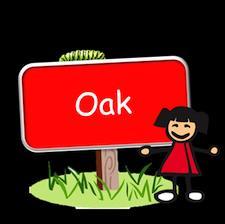
16
Class Oak 4 - 6 years (Year EYFS/1)
Class Willow (Year 1/ 2)
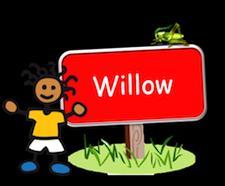

During this year emphasis is placed on developing the children's knowledge of, and ability within the full range of National Curriculum subjects. The children will be presented with opportunities to work collaboratively and within a cross curricular topic based approach.
The children will be encouraged to develop their reading skills enjoying books for pleasure and for information.
The children will have opportunities to write in different contexts and for different purposes. (diaries, stories, letters, lists, posters and accounts etc.) They will be given computer experience to enable them to produce both written and graphic work becoming familiar with many computer functions. Children will be helped to build up a wide and interesting vocabulary using common spelling patterns and word families etc.
We will be using and applying Mathematics to ask and respond to such questions as, "what would happen if ... ?” The children will continue to develop their number skills, explore shape and space and use non standard measures in order to compare and develop recognition of the need for standard units.
Science is an important core subject in our school's curriculum and during this year we will develop the children's ability to ask questions, put forward ideas test hypotheses and draw conclusions in a scientific context. The emphasis will be on practical investigations.
For those in the final year of Key Stage 1 schooling we aim to extend and build upon the skills of the individual to equip them for the next stage of their primary education. At the end of this year the children undertake standard assessment tasks as part of their formal assessment at the end of K.S.l.
This year aims to provide a lively and happy environment in which children will develop physically and creatively enabling each child to fulfil their potential.
17
Class Chestnut (Years 3 & 4)
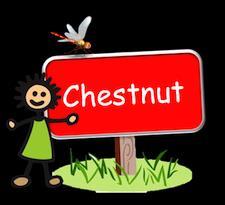

Children come into this class with an understanding of the basic concepts of number and can read with varying degrees of fluency. We aim to build on the knowledge and skills gained at Key Stage 1 and to continue to foster the attitudes which will allow the children to develop as independent learners.
In reading children will enjoy access to a range of story books in the class library and non-fiction books in the school library. In writing much of the children's experience will come from work undertaken in other areas of the curriculum. Emphasis is placed on a developing knowledge of story construction and non fiction reporting. The basic skills of language - vocabulary, sentence structure, basic spelling rules, etc. will continue to be developed.
In mathematics children use the a wide range of maths resources and activities and have the opportunity to undertake work at their own level of ability and experience. Maths problem solving investigations, data handling, measures, etc. will all be developed building on the children's knowledge of number. The children will practise multiplication facts so that those can easily be recalled.
Science, History, Geography, Technology, ICT, Music and R.E. continue to be taught through topics which will now often have a subject bias. Art will be associated with the topics with the children experiencing a variety of media and techniques.
P.E. is taught through half-termly themes
18
Class Sycamore (Year 5/6)


Literacy and numeracy lessons continue to take place daily, each morning, in single age classes. During Literacy lesson children will be given access to a wide range of both fiction and non-fiction texts and will further develop their comprehension skills. They will learn how to write a wide range of narrative stories and non-fiction , with appropriate text structure and vocabulary. Spelling, punctuation and grammar have a strong focus and are developed through Big Reading and Writing activities.Speaking and listening skills will be developed through discussions and drama. In Numeracy the children will continue to develop their number skills and their ability to apply these skills to problem solving and investigations.
The other subjects of the curriculum, Science, History, Geography, Art, DT, French and ICT will usually be taught through our topic for the term. During topic lesson children are encouraged to take some responsibility for their learning and carry out research projects and prepare presentations on aspects of the topic they find interesting. RE and PE are taught weekly as individual lessons.
A wide variety of teaching strategies are used to deliver the curriculum and children gain experience of working individually, in pairs and small groups. All work is differentiated to ensure each child achieves his or her full potential. The pupils are encouraged to become independent learners and to develop their investigational and research skills.
Homework is given on a regular basis and is used to reinforce the work being done in the classroom. The children have diaries and parents are encouraged to check the work done at home and sign the diary.
During the summer time (usually in May) the Year 6 pupils are formally assessed using teacher assessment and standardised tests. These results are reported to parents. Following this they can let their hair down on residential where they cover the Outdoor and Adventurous activities Programme of Study.
The class takes a responsible part in the running of the school and pupils are encouraged to act as positive role models to the younger children. They are also given opportunities, where possible, to make links in the community.
This year we aim to provide a stimulating curriculum which encourages the children to independent and enthuastic learners, well prepared for the challenges that secondary schol will bring.
19

20





















